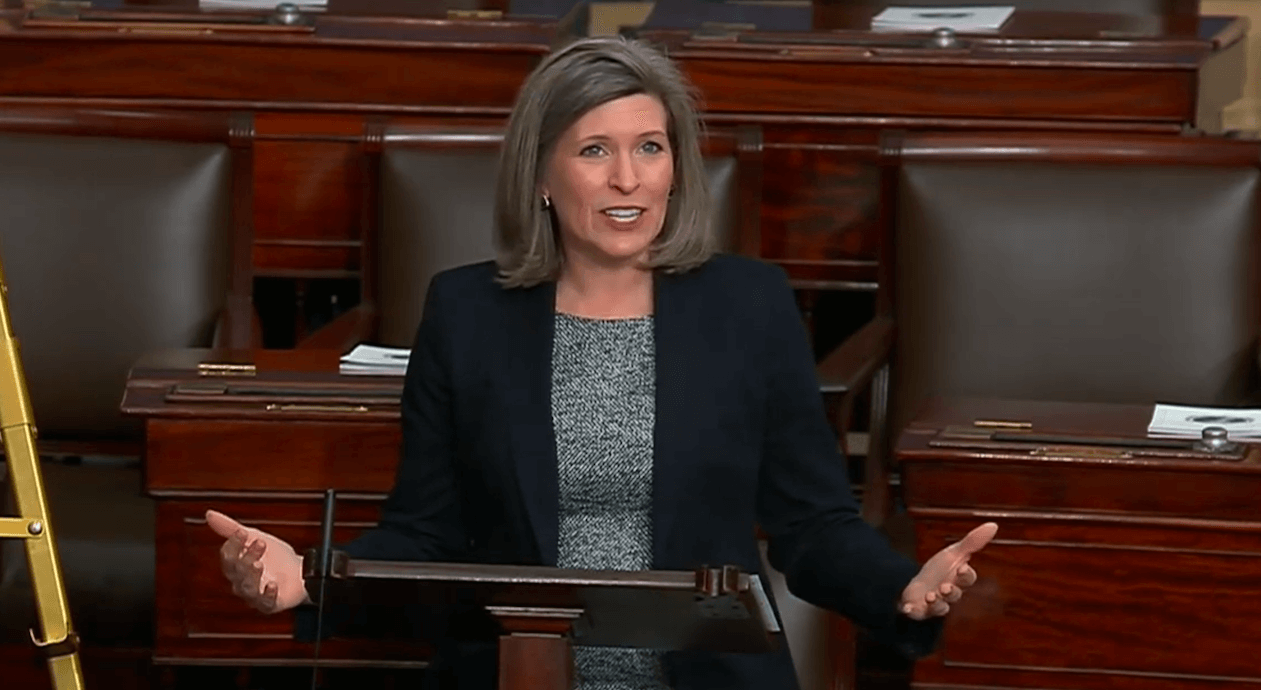
Under the Trump Administration, the Republican-controlled Senate is known more for confirming judges than debating legislation.
But today, Senate Majority Leader Mitch McConnell teed up two procedural votes on abortion-related bills to make them eligible for passage.
Sixty votes are needed in the Senate to move legislation forward for a floor debate and vote. Neither bill cleared the 60-vote threshold on Tuesday afternoon.
The “Pain-Capable Unborn Child Protection Act” bans women from obtaining an abortion 20 weeks post-fertilization, except in cases of rape, incest or danger to the mother’s life. Republican Sens. Susan Collins and Lisa Murkowski joined Democrats in voting against the motion to invoke cloture. Democratic Sens. Bob Casey and Joe Manchin sided with the majority of Republicans to vote in favor.
The 20-week abortion ban, or about five months gestation, failed to pass the Senate when it was last brought up for a vote in 2018.
The “Born-Alive Abortion Survivors Protection Act” requires medical care be administered to infants who survive an abortion attempt.
The legislation states that a medical professional must “exercise the same degree of care as reasonably provided to another child born alive at the same gestational age” and immediately admit the infant to a hospital, or be subject to a fine or up to five years in prison.
In 2002, during George W. Bush’s presidency, the “Born-Alive Infants Protection Act” was signed into law with bipartisan support. Opponents of Sen. Ben Sasse’s bill point to this law, which guarantees full legal rights to infants born at any stage of development, as proof that the vote today was meant only to demonize abortion providers and would have no practical implications given that infanticide already is illegal.
Sen. Lindsey Graham of South Carolina is behind the 20-week abortion ban bill and Sasse of Nebraska authored the “born alive” bill. Iowa Sens. Joni Ernst and Chuck Grassley are co-sponsors on both pieces of legislation.
[inline-ad id=”0″]
Earlier this month, Ernst spoke in favor of Sen. Sasse’s bill during a Judiciary Committee hearing.
“We as a society will be judged on how we handle the most vulnerable in our society,” Ernst said. “Whether they’re wanted or not, those are still babies.”
As a society, we’ll be judged on how we treat the most vulnerable—whether they’re wanted or not.
@SenSasse’s Born-Alive Abortion Survivors Protection Act simply asks for a consistent standard of care for newborn babies. pic.twitter.com/KNmdwnpfYC— Joni Ernst (@SenJoniErnst) February 11, 2020
Senate Minority Leader Chuck Schumer addressed the bills on the Senate floor, expressing surprise that anything, even Republican-led bills, were able to make it out of McConnell’s “legislative graveyard.”
“Leader McConnell should stop wasting the few votes he does schedule with these shameless political stunts,” Schumer said Tuesday morning. “And instead, bring legislation to the floor that would actually improve the health care of the American people and of American women, in particular.”
The Iowa Democratic Party also pounced on Ernst’s votes, calling her support for the bills a “reprehensible crusade against reproductive freedom.”
“A woman’s right to make our own health care decisions is not a tool to be wielded to win an election,” said IDP communications director Mandy McClure, in a statement. “Iowa women will make our voices heard loud and clear this November, and that voice will elect a senator who will protect — not impair — the rights of women.”
[inline-ad id=”1″]
Because anti-abortion legislation is unlikely to make headway in Congress, state legislatures largely have taken up the mantle, despite being met with resistance in the court system.
During the 2018 session of the Iowa Legislature, Gov. Kim Reynolds signed a “fetal heartbeat” bill into law, barring abortion as early as six weeks into a pregnancy. Early in 2019, however, a district judge ruled it unconstitutional.
Currently in Iowa it is illegal to obtain an abortion at 20 weeks or more post-fertilization except “in cases of life or severely compromised physical health.”
This year, Republicans are moving forward with a constitutional amendment to establish that Iowa does not protect abortion rights or require the procedure to be publicly funded. The proposed amendment cleared the Senate with only support from Republicans on Feb. 13. Tonight, a public hearing is scheduled on the legislation so Iowans can weigh in on it before it goes before the full House of Representatives.
If the bill passes the House this year, it will have to be approved in both chambers again in 2021 or 2022 before it could be placed on the ballot for a statewide vote.
By Elizabeth Meyer
Posted 2/25/20

Lanon Baccam wins 3rd District Dem primary, will face Zach Nunn
Baccam defeats Melissa Vine to challenge Republican incumbent Lanon Baccam defeated Melissa Vine in Tuesday’s Democratic primary for Iowa’s 3rd...

Hardin County man running for office as Trump-loving Democrat to local party’s dismay
Brad Rewoldt, who recently changed his party affiliation from Republican, says his support of Trump will probably 'piss off' Democrats There is a...

Scheetz: Tax cuts for all Iowans, not just the wealthy
State Rep. Sami Scheetz says all Iowans should benefit from tax cuts via a sales tax reduction As a state representative, my job is to serve the...

Kalbach: What Iowa Republicans focused on during legislative session
Our state legislative session finished up towards the end of April, and I’m glad it’s over! From further de-funding and privatizing our public...

Advocates file suit to stop Iowa’s ‘unconstitutional’ immigration law
Immigration advocates filed a federal lawsuit Thursday to stop Iowa’s new immigration law—SF 2340—from taking effect arguing that the legislation...

Iowa Republicans make outlawing gay marriage key 2024 campaign priority
Iowa Republicans have made outlawing gay marriage a key goal in their 2024 party platform. During the Iowa GOP’s 2024 state convention on Saturday,...




